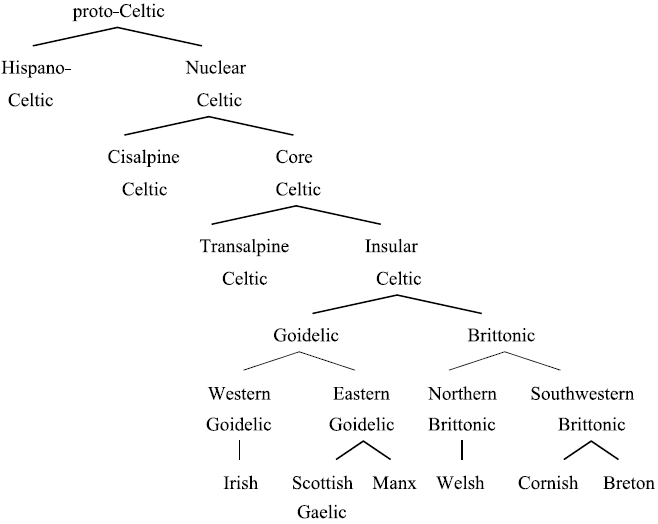A certain, quite incidental, post has piqued a surprising amount of interest; thus, I'm reposting some points from previous posts over the years which may be of interest: a very brief and rough guide to the linguistic history of Britain and Ireland in the early middle ages ...
The first English Historian, Bede (Old English: Bēda, c. 672-73 – 26 May 735), notes the use of five languages in Britain: English, British, Irish, Pictish and Latin (HE I. 1). Latin was the language of the Church.
Bede's term for the Irish, Scotti, doesn't distinguish between those in Ireland and those in the Scottish part of Dál Riata. This correlates to his account of Britain in the reign of Oswald, king of Northumbria, who spent 17 years in Dál Riata/rest of Ireland/Pictland ...
and spoke Irish, like his siblings, especially his successor Oswiu: 'he held under his sway all peoples and kingdoms of Britain, divided among the speakers of four different languages, British, Pictish, Irish, and English' (HE III.6). Knowledge of Irish became more widespread ...
in Northumbria, especially among the elite, with the return of Oswald, and his siblings, especially 'Oswiu, who had been educated and baptized by the Irish and was well versed in their language, considered that nothing was better than what they taught' (HE III.25) ...
However, Oswiu accepted the Roman reforms rejected by the network of religious communities following Colm Cille throughout Ireland and Britain, including Iona and Lindisfarne at the Synod of Whitby in 664. Northern Britain, including Northumbria and the Irish kingdom of ...
Dál Riata still spoke and understood Irish, albeit in elite curial and clerical centres in Northumbria, as borne out by the case of Oswald's nephew, Flann Fína, also known as Aldfrith, son of Oswiu. Flann spoke Irish in his Anglo-Saxon court, was renowned for his learning ...
in Britain and Ireland, was educated in Ireland, and was the son of an Irish princess of Cenél nEógain, possibly even the daughter of Colman Rimid (d. 604) son of Báetán, king of Cenél nEógain and high king of Ireland. So, Irish did not die out in Northumbria after Whitby ...
but reached its apogee in the court of Flann Fína. To quote my dear, late friend Aidan Breen: 'Aldfrith was a man of considerable learning, with a competency in three languages, a remarkable achievement for a barbarian king. Under his reign, Northumbrian culture ...
reached its greatest flowering in manuscript illumination, sculpture, and literature, fostered, no doubt, by his love of learning and art. He enjoyed a reputation for learning among both the Irish and the Anglo-Saxons: his death (705) is noted in several of the Irish annals ...
which concur in naming him ‘wise’ or ‘learned’'. Irish gradually faded as a prestige language in the Anglo-Saxon kingdoms which become England after Flann Fína, but as Bede evinces, Irish is still being spoken in Britain when he completed the first history of the English in 731.
• • •
Missing some Tweet in this thread? You can try to
force a refresh





